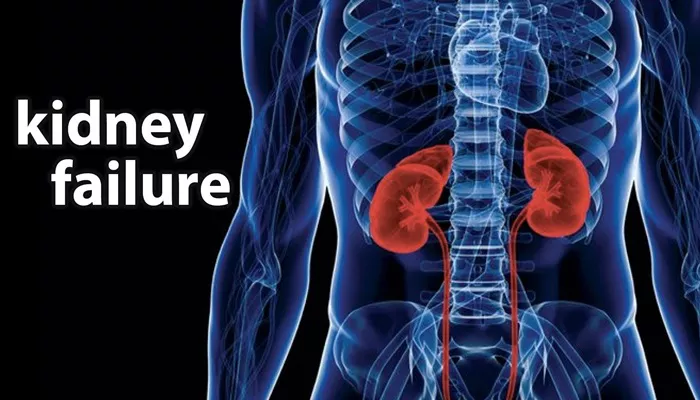Thoracotomy is a surgical procedure that involves making an incision in the chest wall to access the thoracic organs, primarily the lungs and heart. While it is a crucial intervention for various thoracic conditions, it is associated with several complications, one of the most significant being acute renal failure (ARF). The incidence of renal failure following thoracotomy can vary but is notably higher in patients with pre-existing risk factors. Understanding the causes of renal failure after thoracotomy is essential for improving patient outcomes and guiding perioperative management.
This article will explore the multifaceted causes of renal failure after thoracotomy, focusing on the interplay between surgical stress, hemodynamic changes, and patient-specific risk factors.
Causes of Renal Failure After Thoracotomy
1. Pre-existing Renal Conditions
Patients with a history of renal impairment are at a significantly increased risk for developing acute kidney injury (AKI) following thoracotomy. Pre-existing conditions such as chronic kidney disease (CKD), diabetes mellitus, and hypertension can compromise renal function and reduce the kidneys’ ability to withstand surgical stress.
Chronic Kidney Disease: Patients with CKD have diminished renal reserve, making them more susceptible to further deterioration in kidney function during and after surgery.
Diabetes Mellitus: Diabetes can lead to nephropathy, which increases the risk of AKI due to impaired renal perfusion and altered glomerular filtration dynamics.
Hypertension: Elevated blood pressure can affect renal perfusion pressure during surgery, potentially leading to inadequate blood flow to the kidneys.
see also: How Does Sickle Cell Cause Heart Failure?
2. Intraoperative Hemodynamic Instability
Hemodynamic instability during surgery is a critical factor contributing to renal failure. Fluctuations in blood pressure and cardiac output can lead to renal hypoperfusion.
Hypotension: Intraoperative hypotension can severely compromise renal blood flow. The kidneys are highly sensitive to changes in perfusion pressure; even brief episodes of low blood pressure can result in ischemic injury.
Fluid Management: Inadequate fluid resuscitation or excessive fluid administration can disrupt hemodynamic stability.
Proper management is crucial to maintain adequate intravascular volume and ensure sufficient renal perfusion.
3. Surgical Stress Response
The physiological stress response triggered by thoracotomy can lead to various metabolic changes that adversely affect kidney function.
Neuroendocrine Activation: Surgery induces the release of stress hormones such as catecholamines and cortisol, which can lead to vasoconstriction and reduced renal blood flow.
Inflammatory Response: Surgical trauma activates inflammatory pathways that may contribute to endothelial dysfunction and microvascular injury within the kidneys.
4. Nephrotoxic Agents
The use of certain medications during the perioperative period can further exacerbate renal impairment.
Anesthetics: Some anesthetic agents have been associated with nephrotoxicity, particularly in vulnerable populations.
Antibiotics and Other Medications: Drugs such as aminoglycosides or non-steroidal anti-inflammatory drugs (NSAIDs) can be harmful to the kidneys when used perioperatively, especially in patients with pre-existing risk factors.
5. Postoperative Complications
Complications arising after surgery can also contribute significantly to the development of acute kidney injury.
Fluid Overload: Postoperative fluid management is critical; excessive fluid administration can lead to volume overload and exacerbate kidney dysfunction.
Infection or Sepsis: The development of postoperative infections or sepsis can result in systemic inflammatory responses that impair kidney function through mechanisms such as hypoperfusion and direct nephrotoxicity.
Urinary Obstruction: Any obstruction in urinary flow post-surgery can lead to postrenal acute kidney injury due to hydronephrosis.
6. Patient-Specific Factors
Certain demographic and clinical characteristics predispose patients to a higher risk of renal failure following thoracotomy.
Age: Older patients often have decreased physiological reserve and are more likely to have comorbidities that increase their risk for AKI.
Body Mass Index (BMI): Obesity has been linked with increased surgical complications, including AKI due to factors such as altered pharmacokinetics of medications and increased intra-abdominal pressure affecting kidney perfusion.
Ethnicity: Studies have shown that certain ethnic groups may have higher incidences of postoperative complications, including AKI, possibly due to genetic predispositions or varying access to healthcare resources.
Conclusion
Renal failure following thoracotomy is a complex condition influenced by multiple interrelated factors. Understanding these causes allows for better preoperative assessment and management strategies aimed at minimizing the risk of acute kidney injury. Key strategies include optimizing fluid management, carefully monitoring hemodynamics during surgery, minimizing exposure to nephrotoxic agents, and addressing any pre-existing conditions before proceeding with surgical interventions.
Related topics:


